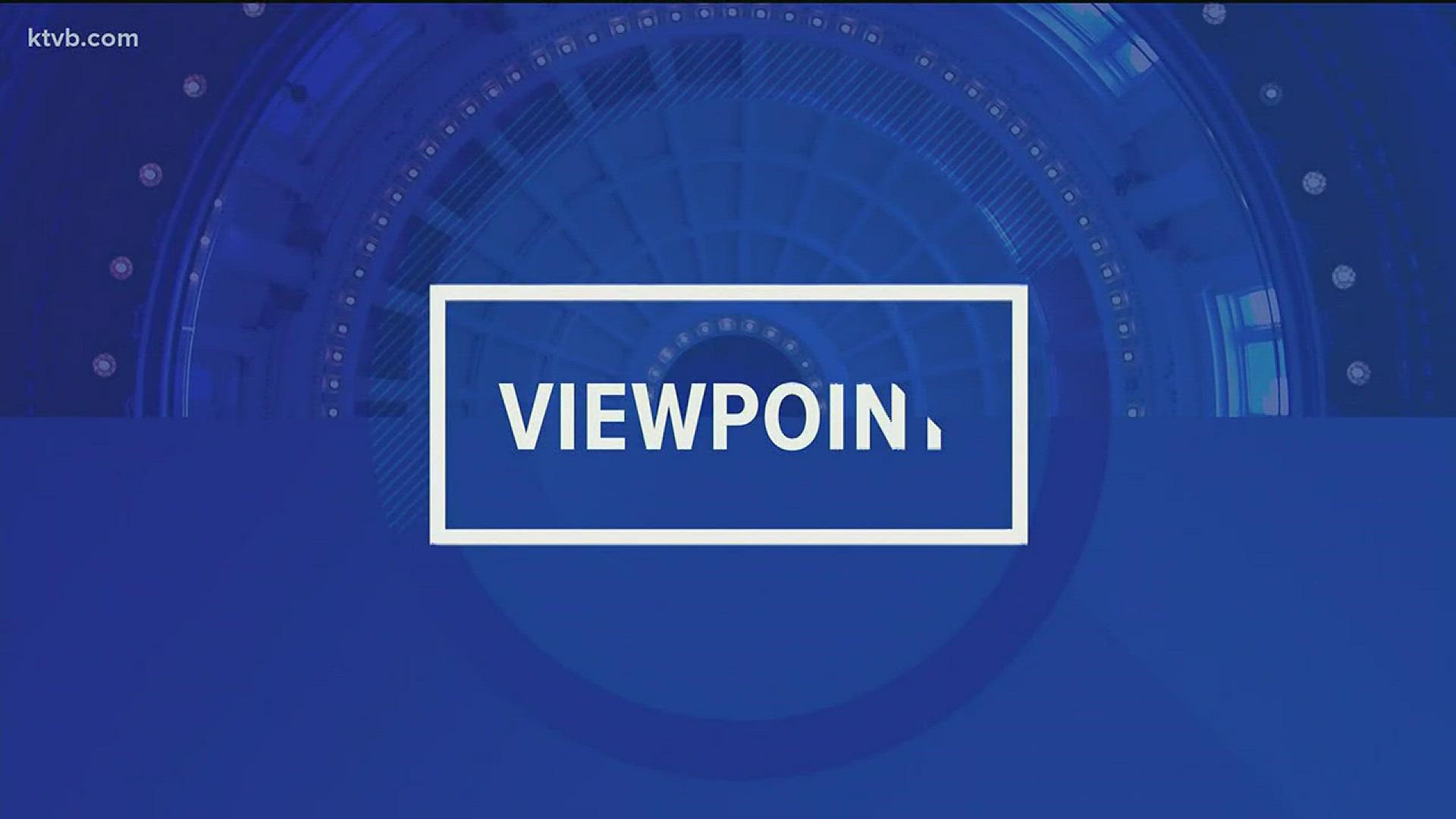BOISE, Idaho — To protect Idaho's students, teachers and staff from the coronavirus, public schools will be closed until at least April 20th, but it could be longer.
The State Board of Education is now considering extending what they call the "soft closure."
For this week's Viewpoint, Doug Petcash interviewed State Board of Education President Debbie Critchfield about that and about the challenges of teaching all of Idaho's school kids at home.
She said it's been a massive challenge to adjust to a completely new system of teaching and learning in such a short time.
Here is some of the key parts of that interview.
Doug Petcash: Are the kids going back to school in their schools this year, do you think?
Debbie Critchfield: "I don't know. That's our $24,000 question. Come Monday afternoon (April 6) at 3 o'clock our board of education has a standing meeting every Monday to address the issues that are important to schools. And this is something that we're going to talk about. What does learning look like for the remainder of the year? What's the latest and newest information coming from our state public health officials as well as the national public health. These are all important factors for our consideration. We know that schools right now have come together in a remarkable way to continue learning for students, but we also know that they need some type of certainty and some type of plan for what the remainder of the school year looks like.
DP: The kids have already lost quite a bit of classroom time. Could the school year be extended? Is that one of the considerations?
DC: "Honestly, we have not talked about that in those terms. There is still a very important element to all of that and that is local decision-making."
DP: So we're seeing school districts rolling out their plans and starting to teach kids from home using different types of methods whether it's online or through packets. What are you hearing from superintendents as far as how that's going?
DC: "I think considering the speed to which these decisions were made and the organization and then implementation that's taking place, I think it's quite remarkable. We know that there are still challenges and hurdles in trying to connect with students, certainly engaging in ways other than technology through a video screen or email is also critically important to student success. And so I think every day is a new day where districts and teachers are building upon what they learned the days before and getting better at it everyday."
DP: Have you even started discussing graduation for our seniors and whether that's going to be possible?
DC: "I know that this is a very prominent question, particularly for our seniors as well as prom and some of these other rights of passage, and we're so sympathetic and just deeply sorry for this disruption for the traditional senior year. And I know that local districts are considering other ways to perform these types activities, particularly graduation, and I really think some good models for high schools right now would be to look at our universities."
DP: How different are you seeing the challenges for the smaller, rural districts compared to the bigger districts?
DC: "I think the number one difference would be their ability to access internet. The broadband issue is something. Governor Little has put together a task force to study that, and I think that's probably the number one challenge. The other thing I think about for the rural communities, although social distancing maybe comes naturally to some of those smaller places like Oakley that also makes it more difficult to be able to connect people with services whether it's food services or services that our special needs students have.
DP: Do you think, in your opinion, that the schools should stay closed for the rest of this school year, 2020?
DC: "Wow, you're really going to put me on the spot here. I don't know what the right answer is for that. I think that we look to the issue of community spread, I think we look to the modeling that's put out there for the peak of our curve, and if Idaho gets to a place where the peak of our curve looks to be the beginning or first part of May, then I have to ask myself that question. Is that responsible to have students go back? Or does it make sense to have students go back for maybe one to two weeks. These are the types of issues our board will talk about on Monday, and they are challenging."
Critchfield praised all the teachers who have been reaching out to their students with phone calls and letters to ease their concerns and help them deal with an unsettling time.
She also praised all the school districts and individuals who are offering the grab-and-go meals and other food options for students in need.
You can watch the full interview with Idaho State Board of Education President Debbie Critchfield on Viewpoint this Sunday at 6:30 a.m. and 11 p.m. on KTVB.
RELATED: Idaho state superintendent not sold on plan to fund public education with sales tax increase
Watch More 'Viewpoint':
See every episode in our YouTube playlist:

